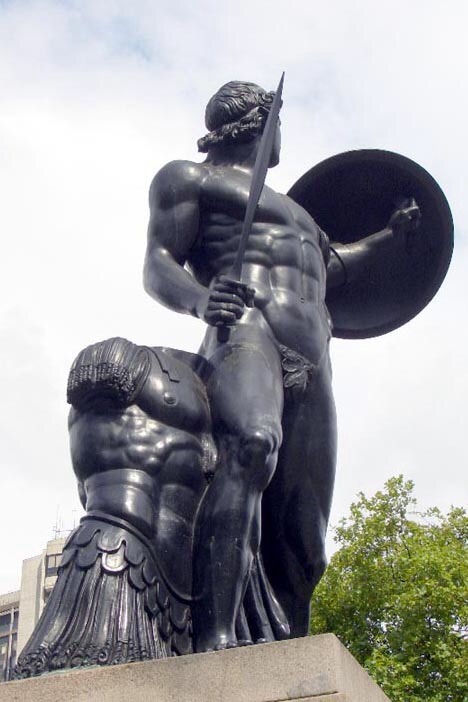The first instance of womanize, ‘to emaculate, make feminine/effeminate’ dates from the time men wore velvet, lace collars, and a large pearl earring if their wealth permitted:
for as the loue of heauen makes one heauenly, the loue of vertue, vertuous; so doth the loue of the world make one become worldly, and this effeminate loue of a woman, doth so womanize a man, that (if hee yeeld to it) it will not onely make him an amazon; but a launder, a distaff-spinner; or what so euer other vile occupation their idle heads can imagin and their weake hands performe: — Sir Philip Sidney, The Countesse of Pembrokes Arcadia, 1593. EEBO
Womanizer in the Casanova sense dates at least to 1822, where the word appears in a still hilarious article about the recent erection of a statue commemorating the Duke of Wellington. British women had subscribed to fund the statue, raising some £10,000, roughly £1.17 million in pre-Brexit currency, and decided that the perfect way to honor the hero of Waterloo was with a classical nude (but for a figleaf) of Achilles:
It is true, that as the Duke is a great womanizer, they might, if they had pleased, have placed, with equal propriety, a beautiful naked Venus on this pedestal; but that would not have been so agreeable to themselves. “Mr. Achilles; or The Ladies’ Man,” The Rambler’s Magazine, 1/8 (1 Aug. 1822), 340.
Though married, the duke and his wife lived mostly apart; his various affairs and liasons were common knowledge.
Wellington Monument, London, Source
The older meaning of womanize, ‘emasculate’ was not supplanted by ‘chase women for casual affairs,’ butaffairs’; the new meaning was simply added: on. The word train, for instance, existed before the railroad.
“Gary Hart womanized: Al Gore risks being womanized.” Whether neoliberals are sexually aggressive or skittish, they all seem to fear womanization. — Vanity Fair 51, 42, 1988.
Womanized in the sexual sense is intransitive. A womanizer simply womanizes — Gary Hart womanized. When reinforcing the speaker’s notion of masculinity, womanize is often used in the passive voice, but a man is womanized by some person, action or circumstance. According to this writer, Al Gore risks being womanized by some unstated agent. In the Arcadia, worldly love for a woman womanizes a man.
Although he is a womaniser, this activity paradoxically womanises him, for it immerses him in a sensuous existence stereotypically associated with the feminine and running counter to the life of self-denial espoused by Lisa's husband. — Gale Research Company, Twentieth-century Literary Criticism, 1999, 232.

